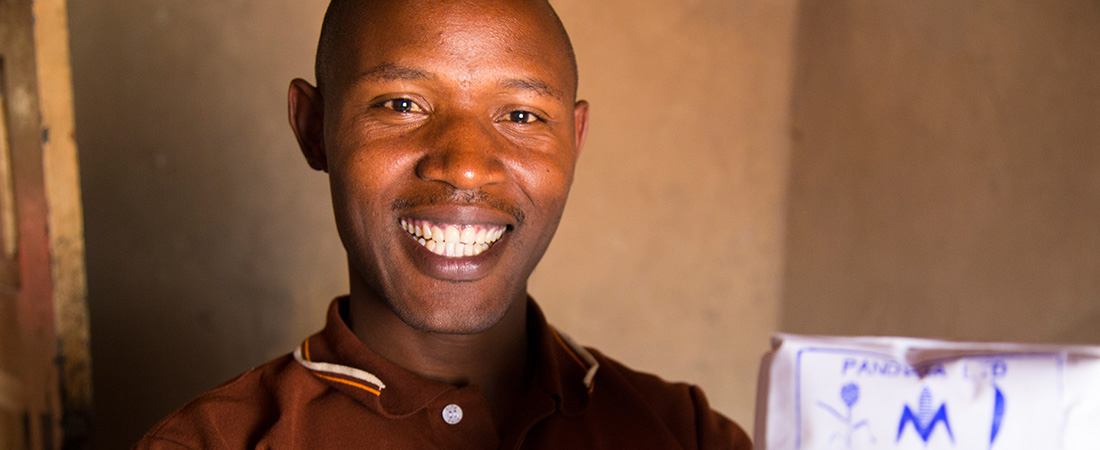“Work Well Done”

Training from Akazi Kanoze helped Jean Bosco Bizimana start his own business.
Marita Mukaniyongira and Diane Niyonkuru have dreams of cutting and styling hair in their own salon someday. But for now, they are content to raise money by working in a less glamorous business—pig farming.
“The kits for starting a salon are very expensive, so we decided to see what else we could do to generate additional income,” says Mukaniyongira. “This led us to pig farming because it is a profitable business, and the production is very fast.”
“We plan to use the profit from the pig farm to support our salon,” adds Niyonkuru.
This type of entrepreneurial thinking is happening throughout rural Rwanda, where EDC’s Akazi Kanoze project has taken root. The project, which is funded by the U.S. Agency for International Development, teaches workforce skills and financial literacy to young people, many of whom have limited education and no prior experience with building businesses. The program also helps participants succeed by providing job placement services.
It’s fitting for a project whose name means “work well done” in Kinyarwanda. Akazi Kanoze is enabling graduates to live better lives than they had before participating in the program.
“Before, I was not expecting to have any savings,” says Niyonkuru, who had been unemployed. “I never thought that was possible. But now, not only am I able to save, but I’m planning additional ways to earn and save more money.”
Melanie Sany, chief of party for Akazi Kanoze, sees financial literacy as only one of the project’s lessons. Participants also gain foundational business skills, including planning for growth, effective problem solving, and managing employee and customer relationships.
“A lot of programs teach technical and vocational skills, but they don’t all cover skills to set yourself up to be able to grow and adapt in the workplace over the longer term,” she says. “This aspect is one of the key strengths of Akazi Kanoze.”
The “soft skills” approach—where participants learn more than just trade skills—is a hallmark of Work Ready Now!, EDC’s youth workforce development curriculum. Work Ready Now! informed the development of Akazi Kanoze and has been used successfully in other African countries.
“It is important to learn a trade, but it’s equally important to learn how to work with clients and show up on time,” says Sany. “We help young people develop sustainable businesses that gain good customers.”
One such business is Panovita, a grain milling company founded by Akazi Kanoze graduate Jean Bosco Bizimana. Panovita makes porridge for children and adults from locally sourced soybeans and maize.
Bizimana, a former nurse, encountered his first real business challenge when he needed moisture-proof bags to store and ship his food.
“I was planning on buying the bags from China, but the work-readiness training from Akazi Kanoze taught me that when you meet a problem, you try to find solutions by using the opportunities you have around you,” he says. “This allowed me to find packaging materials which are good quality, local, and cost much less.”
Mukaniyongira is taking that message about opportunity to heart as well. She credits Akazi Kanoze with changing her outlook about her own financial future.
“The biggest change that I have seen has been in my expectations,” she says. “When I was starting my training, I was expecting to graduate and be hired by an employer. But when I completed my training, I knew how to start my own business.”